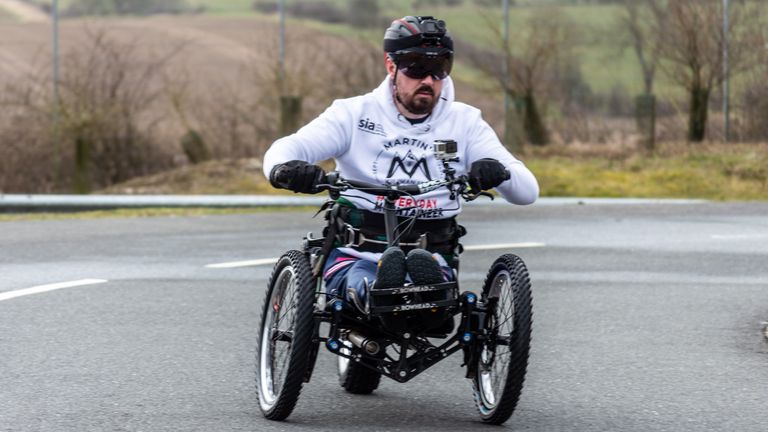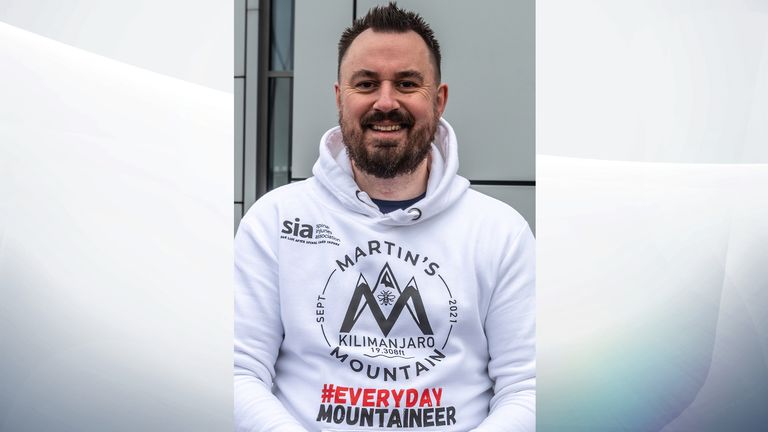Paralysed Manchester Arena attack survivor to take Paralympic torch to Mt Kilimanjaro summit
Martin Hibbert, who was paralysed from the waist down in the attack, will use a specially-adapted bike to make the climb.
Tuesday 16 March 2021 11:27, UK
Manchester Arena bomb survivor Martin Hibbert, who was paralysed in the atrocity, is planning to take a Paralympic torch to the summit of Mount Kilimanjaro.
The 44-year-old was the closest surviving person to the bomb at the Ariana Grande concert in 2017 that killed 22 people and injured hundreds of others.
His rehabilitation has seen him push his body to the limits and he's often exceeded the expectations of the medical teams in the UK and Australia who have helped treat his complex spinal injuries.
Mr Hibbert from Chorley in Lancashire said: "I've decided to turn an appalling act of terror into a force for greater good. I want to do something to shift the spotlight away from those who tried to end my life towards those who helped me rebuild it.
"Disabled people have to climb their own mountains every day, so I've decided to climb a real one.
"Too often the focus is on what disabled people can't do, not what they can. I'm challenging that."
He plans to tackle the 19,308ft (5,855m) mountain in Tanzania, Africa, in September and will be using a specially adapted bike on the climb which he will propel forward with his hands and arms.
He will take a Paralympic torch to the summit, crossing rainforests and snowy terrain which he describes as a "powerful statement of the possible".
"Seven people are paralysed by spinal cord injury every day but just one in three spinal cord injured people get the specialist care we need," he said.
More than 50,000 people across the UK face a life of paralysis through damage to their spinal cord.
Mr Hibbert added: "I want to start a revolution to change people's perceptions of what it means to be disabled.
"I want everyone to have the care and support they need, helping everyone to lead the life they want and being fully involved in the decisions that shape their lives."
Nik Hartley, chief executive of the Spinal Injuries Association, said: "Too often disabled people are seen as second-class citizens, but Martin's incredible climb is a powerful statement of why achieving one's goals should not be defined by disability. He is aiming to fundamentally challenge people's perceptions of what it means to be disabled."





